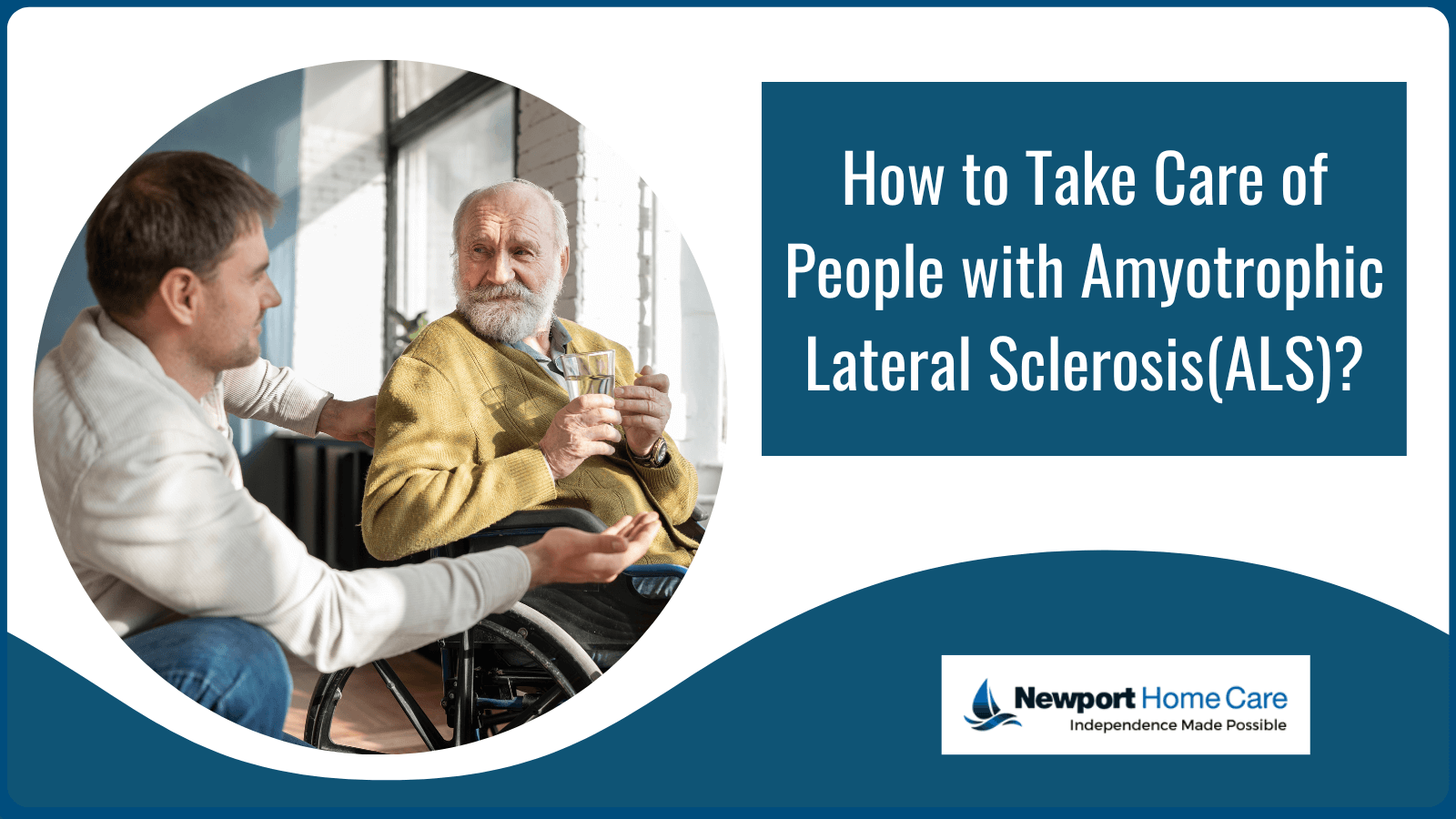


Looking after a family member or friend dealing with ALS can present a challenging path to tread. This severe neurological ailment systematically strips individuals of their capacity to carry out basic movements, engage in communication, and even perform the essential act of breathing. As ALS progresses, the demand for expert ALS caregivers grows. This blog will go into the elements needed to address ALS and provide the appropriate support to patients.
Amyotrophic Lateral Sclerosis (ALS) is a neurological disease that causes the gradual breakdown of motor neurons in the spinal cord and brain. This breakdown leads to muscle weakness, loss of control over voluntary movements, and, eventually, paralysis. ALS affects the ability to communicate, swallow, and breathe. However, with the assistance of skilled ALS caregivers, patients can address difficulties and maintain their well-being effectively.
The exact causes of ALS are unknown, but it is primarily considered a multifactorial disease with genetic and environmental factors playing a role:
Around 5-10% of ALS cases are due to genetic factors. Individuals are vulnerable to ALS breakdowns if they have a family history of ALS or are more exposed to the symptoms causing ALS.
Certain environmental exposures have been studied for possible ties to ALS. Constant vulnerabilities to heavy metals, pesticides, and other harmful substances can trigger the symptoms causing ALS.
Immune system malfunction may play a role in ALS, causing inflammation and tissue damage.
The symptoms vary depending on the nerve cells that are impacted. ALS starts with weakness in the muscles that expand and worsen gradually. Common Amyotrophic lateral sclerosis symptoms include—
ALS is a deadly disease that progresses if not addressed effectively:
Amyotrophic lateral sclerosis significantly impacts motor functioning and daily life. Individuals with ALS undergo a steady degeneration of motor neurons, resulting in muscle weakening, twitching, and, eventually, paralysis. Simple tasks like strolling, writing, and even communicating become progressively challenging. Managing this severe illness requires making significant daily adjustments. Patients may require assistive devices such as wheelchairs, communication aids, and ventilators as the illness progresses. The emotional and mental toll on patients can make the condition severe.
Patients and ALS caregivers suffer significant emotional and psychological challenges. The progressive loss of physical capacities and the uncertainty of the disease's course lead to anxiety, melancholy, and isolation. Managing these emotional pressures is vital to a holistic ALS care plan.
Caring for someone with ALS calls for the great responsibility of the caregiver. This entails responsibilities like offering daily assistance, providing emotional aid, and organizing medical attention. Effective communication and empathy are essential for recognizing and addressing the patient's needs. ALS caregivers must prioritize a dedicated support plan that encompasses timely medication, care, and personal therapies that help enhance the well-being of the patient.
Creating a supportive environment while creating a physical care plan entails:
Installing ramps and grab bars in the living environment for greater safety and independence.
Maintaining overall health and energy levels by prioritizing a nutritious diet with easy-to-swallow meals.
Mastering mobility approaches, assisting with moves, and aiding in personal hygiene to ensure holistic care and comfort.
Managing medications for the elderly with ALS entails several critical aspects:
It is essential to administer drugs on time to ease symptoms and halt the progression of ALS. A well-planned schedule, frequently combining many drugs, aids in symptom management and general well-being.
A multidisciplinary team of healthcare specialists helps recover swiftly. Neurologists, therapy assistants, occupational therapists, speech-language pathologists, and reliable ALS caregivers are essential to the team.
Keeping a check on ALS symptoms is imperative. Advanced directives and emergency plans must be in place to enable rapid care during medical emergencies.
Connecting with the ALS community plays an important role:
Participation in ALS support groups and internet networks provides important emotional support and exchange of information.
Advocacy initiatives are critical for increasing ALS awareness and advancing research. These projects seek to secure financing, accelerate scientific advances, and enhance the lives of ALS patients.
Sharing personal ALS journey experiences gives optimism and can inspire others to grapple with similar challenges with strength.
At Newport Home Care, we empathize with the distinctive hurdles that ALS caregivers encounter. Our skilled team excels in delivering respite care in Orange County, extending both relief and support to the patients and families. Our compassionate and personalized ALS care plans help you enhance your loved one's life. Contact us today to bring added joy to your loved one's journey.